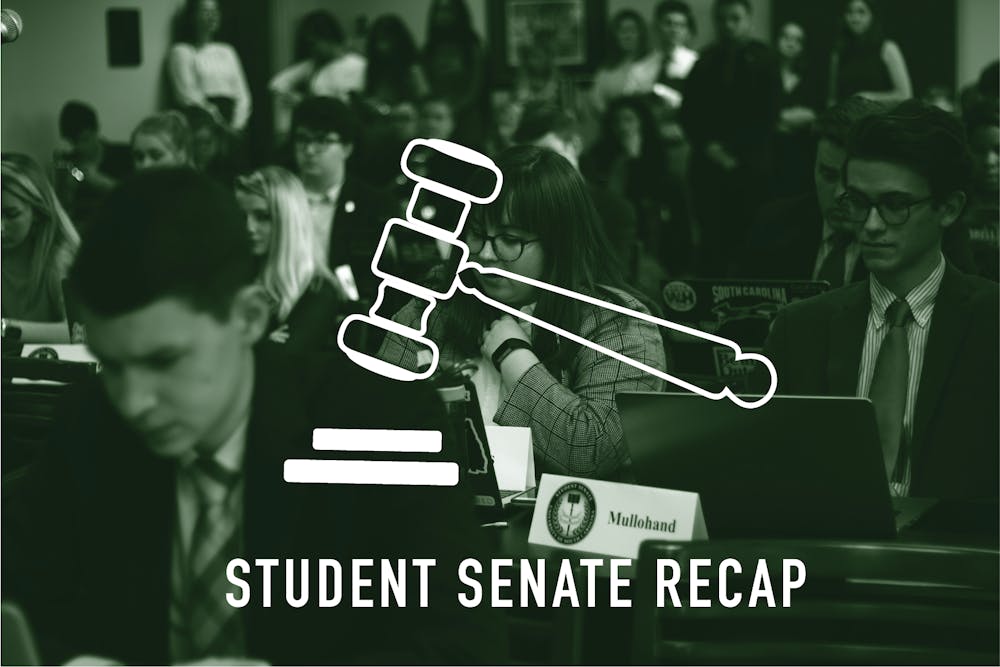The USC student senate passed legislation to update the nondiscrimination clauses throughout the Student Government codes on Wednesday night.
The clauses, which previously were not consistent throughout the Student Government codes, now all protect against discrimination on the basis of 17 attributes.
“I'm really excited for the nondiscrimination clauses, our codes were honestly really upsetting to look at," said Natalie Trimble, co-sponsor of the bills and new speaker pro tempore of the student senate. "None of them matched, they were all just really wonky."
It's important that Student Government's nondiscrimination clauses are on par with the university's nondiscrimination clauses so applicants can't be protected in one position but discriminated against in another, according to another co-sponsor of the bill, Aden Lloyd.
Other bills introduced at the senate session focused on professorial office hours and syllabuses. One of the bills would recommend the university requires professors to offer a virtual option for office hours.
“You can break your leg and not be able to get around like you used to, or just trauma, you can get traumatized or something. There's so many instances that a student can need virtual office hours," co-sponsor Taylor Curry said.
Another bill about office hours would recommend a statement be put in the faculty manual outlining a system of appeals for students if office hours are not upheld as they are outlined in the syllabuses.
A third bill about syllabuses would encourage professors to specify whether textbooks listed in their syllabuses are required or supplemental to avoid financially burdening students.
“Students shouldn’t be misled into buying things that they think they need to and don’t actually need to get a good grade,” Lloyd, also a cosponsor of this bill, said.
The bills, referred to the academics committee, will be voted on at a later date.
Another bill to be voted on in the future was introduced by senator Jada Hudson and senator Lloyd, and would place a cap on campaign spending for senatorial and executive positions.
“Jada and I see this as just correcting an injustice that we see on campus, because students that maybe do not have the funds to be executive candidates or senatorial candidates should be given at least a more equal opportunity to do so,” Lloyd said.
The bill would prevent candidates for executive office from spending more than $1,500 and senatorial candidates from spending more than $250. The bill would also require that candidates send an itemized budget with their signature to the elections commission.
Also during the meeting, John Hladun and Ashutosh Arora were confirmed as elections commissioners.

